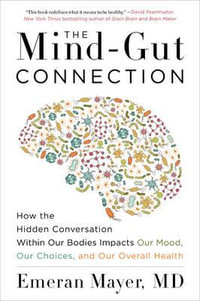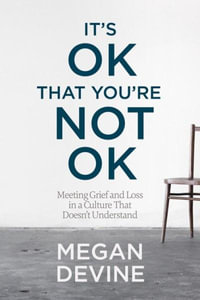The problems of medical care confront us daily: a bureaucracy that makes a trip to the doctor worse than a trip to the dentist, doctors who can't practice medicine the way they choose, more than 40 million people without health insurance. "Medical care is in crisis," we are repeatedly told, and so it is. Barely one in five Americans thinks the medical system works well.
Enter David M. Cutler, a Harvard economist who served on President Clinton's health care task force and later advised presidential candidate Bill Bradley. One of the nation's leading experts on the subject, Cutler argues in Your Money or Your Life that health care has in fact improved exponentially over the last fifty years, and that the successes of our system suggest ways in which we might improve care, make the system easier to deal with, and extend coverage to all Americans. Cutler applies an economic analysis to show that our spending on medicine is well worth it--and that we could do even better by spending more. Further, millions of people with easily manageable diseases, from hypertension to depression to diabetes, receive either too much or too little care because of inefficiencies in the way we reimburse care, resulting in poor health and in some cases premature death.
The key to improving the system, Cutler argues, is to change the way we organize health care. Everyone must be insured for the medical system to perform well, and payments should be based on the quality of services provided not just on the amount of cutting and poking performed.
Lively and compelling, Your Money or Your Life offers a realistic yet rigorous economic approach to reforming health care--one that promises to break through the stalemate of failed reform.
Industry Reviews
"Concise and persuasive...avoids most of the ideological shoals of the health care debate.... Cutler shows how the current system could be redesigned so that everyone is insured, the quality of care improves and the overall costs remain roughly the same."--Washington Post
"This slender but important book...makes some exceedingly valuable points. Its passionate argument that modern medicine works is persuasive. It argues equally convincingly that there is both an economic and a moral case for medical spending. Perhaps most notable, it points out the many perverse incentives in our current system of financing medical care, and it argues that we should correct the system by providing financial incentives for the medical
treatments and the approaches we truly want. The book, in sum, represents a significant contribution to health-policy literature and ideally, would be used to inform present and future discussions of health
care in America."--St. Louis Post-Dispatch
"It's also important for readers to understand the cost effectiveness behind developments in treating such conditions as cardiovascular disease, infant mortality and mental illness; chapters devoted to these are the best material in Cutler's book. His case studies are well researched and offer a tremendous amount of information about medical history and its economic significance."--Los Angeles Times
"When economics and medicine mix there is bound to be confusion unless someone like Harvard economics professor Cutler, who seems to effortlessly make a complex issue comprehensible, is doing the mixing.... An elegant investigation."--Booklist
"Cutler has paved the way for a unique new understanding of health care in America: policy makers and providers should focus on increasing the value of dollars spent rather than rehashing the tired distinction between cutting costs and paying more. For everyone interested in improving health care in the United States, this is original and inspiring--actually, indispensable." --Bill Bradley
"A thoughtful analysis of the problems afflicting our health care system. His creative proposals will interest every citizen concerned about improving American health care." --Edward M. Kennedy
"This highly-readable volume explores all of the major issues that confront us as we attempt to improve America's health care system. David Cutler provides a clear and concise guide to how one should think about the costs and benefits of health care, the value of medical advances, and options for reforming the health care system. This is the book to buy if you want to understand how we can improve health care in America." --Robert D. Reischauer, President,
The Urban Institute
"Cutler presents a refreshingly optimistic path for the future of America's health care system--promoting policies focused on increasing the value of medical services and improving health outcomes. He finds over and over that while health care expenditures are significant, we get a great deal more in return. His work is a major contribution to what I believe will become an increasingly interesting and important debate--is more medical spending necessarily
bad?" --Art Collins, Chairman and CEO, Medtronic, Inc.
"Flatly refutes the proposition that good economics has to be a difficult slog through arcane tables, charts, and mathematics. In 123 absorbing pages he shows readers why the gains from improved health care vastly exceed its formidable costs and how the gains could be larger still. In so doing, he demonstrates that good economic analysis can contribute constructively to debate on public policy--and quote Euripides aptly at the same time!" --Henry J. Aaron, The
Brookings Institution
"Cutler's upbeat book delivers a welcome message to a public wearied by reports of medical errors, the rising number of uninsured, and the relentless growth in medical expenditures. Anyone with a serious interest in the U.S. health care system--and its future--should read this engaging and provocative book by one of the most insightful health policy experts in the nation." --Alan Garber, Center for Health Policy, Stanford University
"Cutler's discussion of managed care and how doctors are reimbursed for certain procedures but discouraged from other practices is especially clear. Cutler's position--health insurance for all and doctor reimbursement by quality, not simply service--is clear and compelling."--Publishers Weekly
























